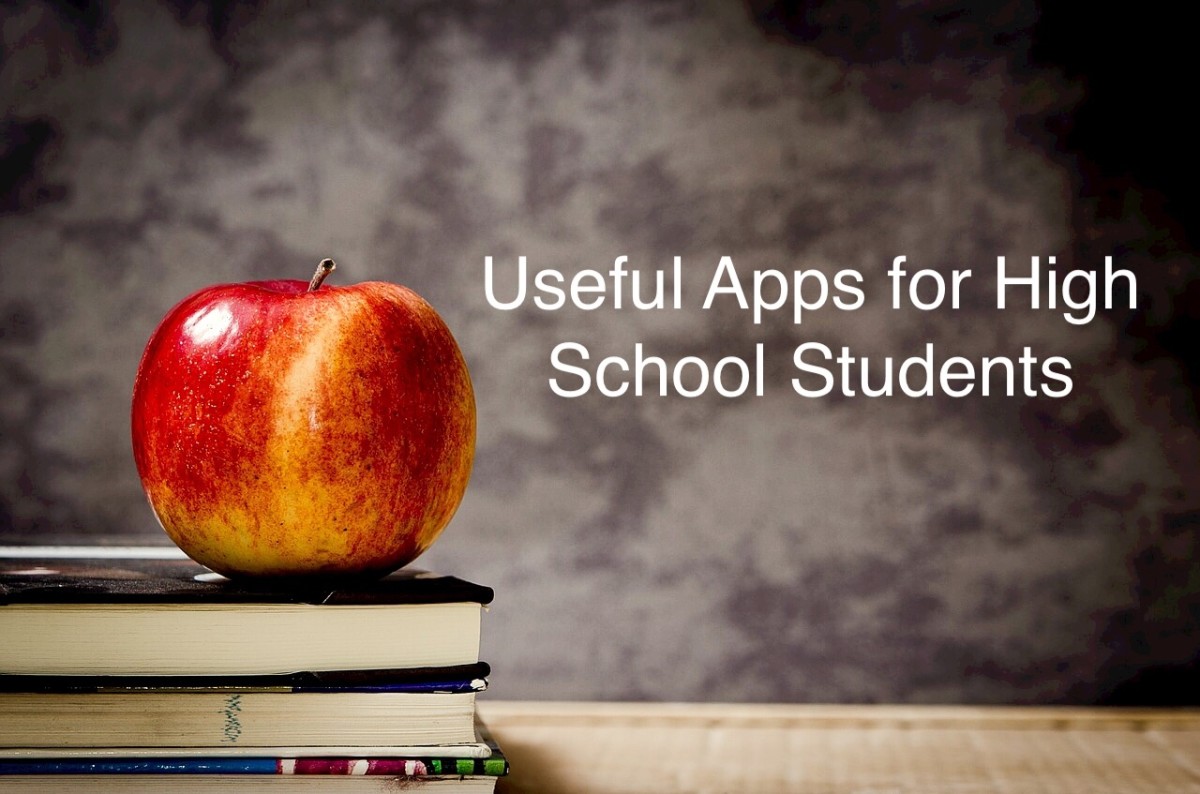Finding the Perfect College - A Guide for High School Students

As new students arrive at colleges around the country this Fall, an equal number of younger students begin their own personal search for the right college. But as they will soon learn, finding that perfect college can be anything but simple. I am writing this article for you - the high school juniors and seniors who are looking for that one perfect school. As someone who has been through the experience myself, I feel I can offer some helpful tips. Obviously, not all of these tips will apply to every student, but I hope you can find some that pertain to you.
Assess Your Standing
Before I talk about finding the perfect school, I want to talk about the things you should take care of first to make sure you find a school that meets your potential. Let's face it: not everyone can get into the best school in the nation. If they could, it wouldn't be called the best school in the nation. For that reason, one of the most important parts of the college search actually occurs before you even begin searching for a college. That part is the SAT or ACT tests. These tests are taken all around the country by high school juniors and seniors (and sometimes sophomores and even freshmen). Essentially, these tests consist of a bunch of math and English related questions that determine how "prepared" for college you are. Many students fear taking these tests, but it is really important to do well on them. You can be the brightest student in your class, but a low SAT or ACT score can cause issues when applying later on.
The best idea is to look at a general requirement for several schools you may interested in and determine a range for what a good score is for you. For example, you may be interested in several schools and you notice that there SAT score requirements range from 1100 - 1300. So depending on which schools you really want to aim for, you can shoot for a score in that range. The good news is that the tests can be taken multiple times. So if you don't meet your goal the first time, you can study the areas you did poorly on and try again. Check and see if your school offers SAT prep classes and sign up for them. They can really help improve your score.
There is good news if you just can't seem to get a good test score. Many colleges take a number of things into account when determining who to admit, and SAT scores are not on the top of the list. They are important (so don't skip studying), but colleges realize they don't paint to whole picture of a student. For example, a student who had a average score on the SAT but is involved with ten different clubs and sports and gets fairly good grades has almost an equal chance as a student who gets a high SAT score but is not involved in any activities.
Getting Involved - Colleges Love It
Trust me when I tell you that colleges love extra curricular activities. I cannot stress enough that you should get involved with at least two or three clubs and hold at least one or two leadership positions. It may not seem important, but when you apply to college, that page titled "Activities" is going to hurt you if it is completely blank. So get involved!
Beginning the Search
So once you take care of all the things you need to do in terms of academics and activities, it's time to start the long-awaited college search. The very first place you should go is the guidance counselor. If you've never been to the guidance counselor's office, get to know your counselor. It will make things a lot easier for the next year or two. Your counselor isn't there to scare you or ask you weird questions; in fact he or she can be very helpful. So ask them to look at some of the books they have on colleges. Obviously the whole search process can be made simpler if you have a clear idea of what you want to do, but entering college as an undeclared major is becomming more common. So work with your counselor to find a list of several schools that you want to investigate. The next step is to check those colleges out. Visit their websites, go to collegeboard.com and read the college summaries about the schools you picked, and read about them on review sites like collegeprowler.com.
Understanding What You Read
When you get on to college review sites, consider what you read as an exaggeration. Think about it: when you have a problem with something, you are more inclined to go online and vent about it than you would be if you had a positive experience. It's the same thing with college reviews - you're going to read a lot of negatives and possibly a few positives. But know that the school can't possibly be the "worst school in the whole universe" as some reviewers say. However, look for common themes among all the reviewers. For example, if ten reviewers in a row say that the food is horrible, then it may be something to consider as true. Just look out for extreme statements and reviews that are obviously meant to bash the school.
Make a Visit
One of the best things I ever did when making a decision for where to spend four years of my life is actually visit the college. You wouldn't buy a car without test driving it or purchase a home without looking inside, so you shouldn't pay tons of money to a school without at least checking them out. Almost every college these days realizes this and goes through a lot of work to set up an "open house" where they showcase their school. These visits are truly a great time to see what your school is really all about. The website for a school is a great place to start, but it can never compare with an actual visit. I can't tell you how many schools I was seriously considering after I viewed their websites. But after a visit, I quickly changed my mind for many of them. The school that I wound up attending was one that I visited first, and then viewed their website. A good open house speaks volumes about a college.
While you are attending open houses, make a list of questions you want to ask during your visit. Ask questions of the admissions counselors, the professors, even other students. A student who is randomly walking along is going to give you a much more honest opinion than a studnet ambassador who works for the school. Keep a look out for things you wouldn't think about: are the classes close to the dorms or do you have to take a shuttle? Does the shuttle run every ten minutes, or does it just seem like that because they are during the open house? Keep a file for each school and put notes from your visit in it. They will be truly helpful when you're making a decision in a year or two and can't remember one visit from the next.
Schedule a Personal Visit
Yes, open houses are great. But the school is trying to impress you and the 2000+ other people who are coming there that day. Everything is going to be clean, the best dorms will be open, and the school's best professors and speakers will be out to talk to you. An even better option is to view the school like it would be when you're actually attending. So call the admissions office and schedule a personal visit. Most colleges are willing to help you with this. Ask if you can sit in on a class and possibly meet with the professors in the department of your major. This is extremely helpful and is definitely the time to think of some specific questions that you can ask about the program, etc.
Make a Spreadsheet
This probably sounds like one of those things your parents tell you to do that you really dread, but I can't stress how helpful it can be. Create columns for important dates such as the application deadline and when you will be notified. Also create a column for total costs - including room, board, and meals, etc. This will give you a total picture of how much you'll be paying to attend the school. If you anticipate scholarships, you can create a column for costs after scholarships and update it as you receive more.
Apply to More Rather Than Less
When you finally find some schools that are good fits, it's time to apply. In the case of applying to schools, more is better than too few. If you only apply to one school, you risk not getting accepted. Obviously this doesn't mean you should apply to ten different colleges, but three or four is a good number. That way you can weigh your options and consider any financial aid you are getting. In the end, it will feel good to have choices. The application process is always boring, but make sure you keep track of deadlines, write a great essay, pay your application fees, and work with your guidance counselor to send the appropriate letters and required information.
Conclusion
Obviously the steps that I listed here are not a complete guide. That would take hundreds of pages. However, I hope that it provides a good overview of the things you need to take care of in order to make a good college decision. Make sure you apply for scholarships and consider all of your options. College is the place you will remember for the rest of your life - so make the right decision.
Tags: applying for college, high school college how to, guide to finding a college, how to find a good college, finding a good college, finding a great colege, how to apply to college, the college application process, applying to college in high school, steps for applying to college, high school guide to college, ways to apply to college, guide for high school seniors, sat guide, act guide, college applications, ways to find good college, finding the best college, best colleges, best college for me, how to work on college, college application process, things to do before college, things to do to find college, finding a good college for you








